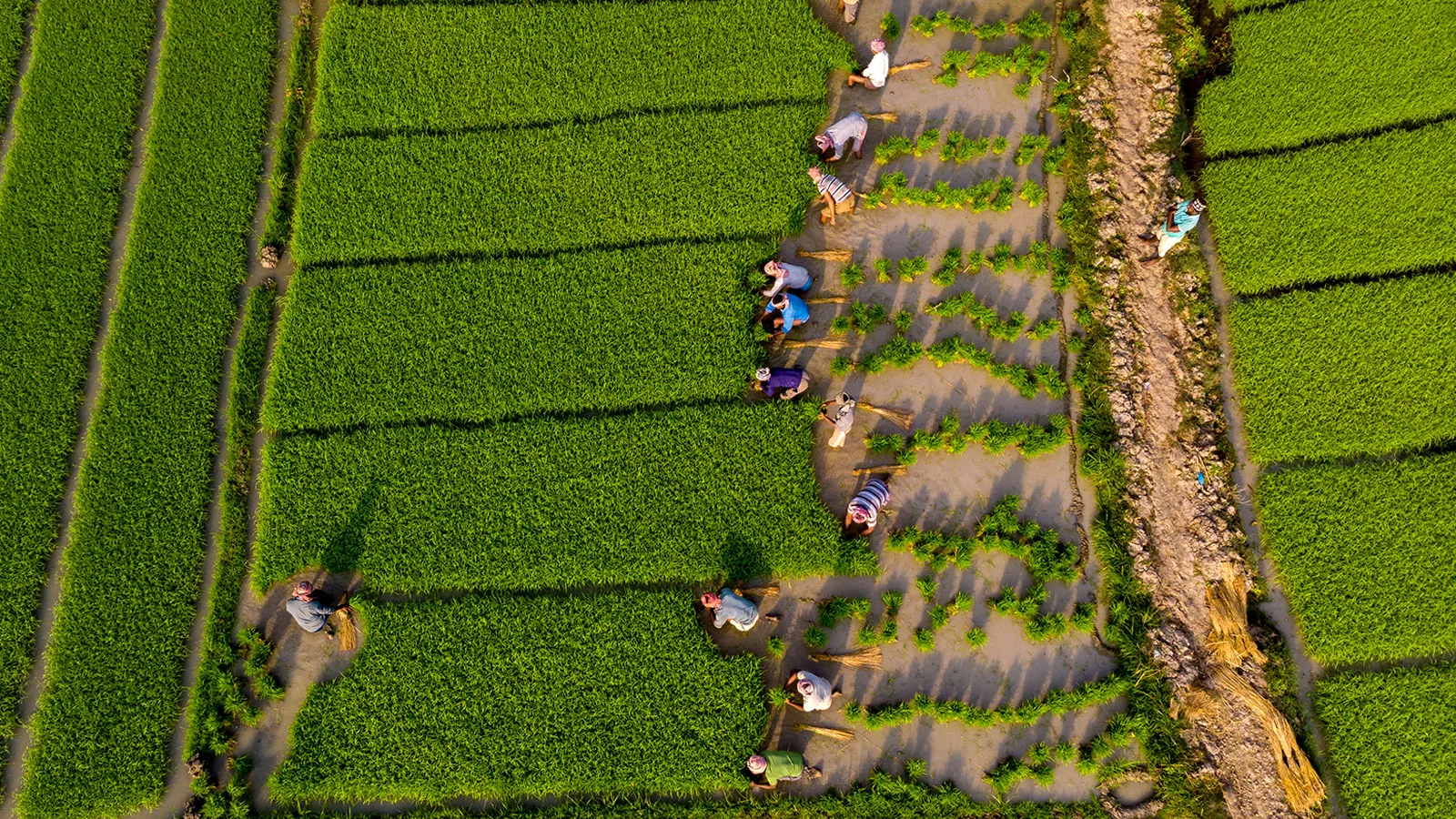Food fuels our bodies and plays a powerful role in human health, culture, productivity and potential. It is central to livelihoods and creates connection to family, community and natural ecosystems on land and in water.
The food system, however, is also contributing to pressing global challenges. It contributes to approximately 25% of greenhouse gas (GHG) emissions, three-quarters of biodiversity loss and is a leading cause of non-communicable disease.
We must transition towards a future in which business, farmers, policymakers and civil society collaborate to deliver regenerative and equitable agricultural systems producing quality raw material and nutritious food for all by 2050.
To contribute to achieving our vision, leading businesses from across the agriculture and food value chain work within WBCSD’s Agriculture and Food Pathway to raise ambition, accelerate action and strengthen accountability, building vibrant economies and societies, protecting climate and restoring nature while supporting food and nutrition security for the world’s growing population.

A&F Priority Areas
Performance Management
Enhancing business performance and accountability by aligning metrics and frameworks to support decision-making, capital allocation, and the shift towards regenerative agriculture and healthier and more sustainable diets.
Collective and Regional action
Convening value chain actors, key stakeholders, and members to trigger collaborative efforts and investments in key regions or value chains to drive impactful change and collective solutions in agriculture and food production systems and high-impact landscapes.
Agenda Shaping and Advocacy
Leading advocacy efforts to increase support for ambitious change and strengthen collaboration across value chains and between public and private sectors, while working closely with our thematic and regional teams.
Our Highlights
The 2025 EAT-Lancet Commission
An important scientific contribution to advancing global food systems transformation and a valuable reference point to help businesses enhance resilience, ensure stability, and remain competitive in a changing market.
Food and Agriculture Roadmap
This sets out transformational targets, key action areas and solutions urgently required to transform food systems to achieve environmental sustainability, equitable livelihoods, and healthy and sustainable diets for all.
Business guidance for deeper regeneration
WBCSD and OP2B launched a Regenerative Agriculture Initiative in 2023 to accelerate the transition to farming systems that restore soil health, biodiversity, water, and climate resilience while improving socioeconomic outcomes.
Case Studies: Food & Agriculture
Collection of business actions and examples of collective initiatives that demonstrate how food and agriculture businesses are working together to achieve WBCSD’s vision of a regenerative and equitable food system producing healthy, safe and nutritious food for all.





